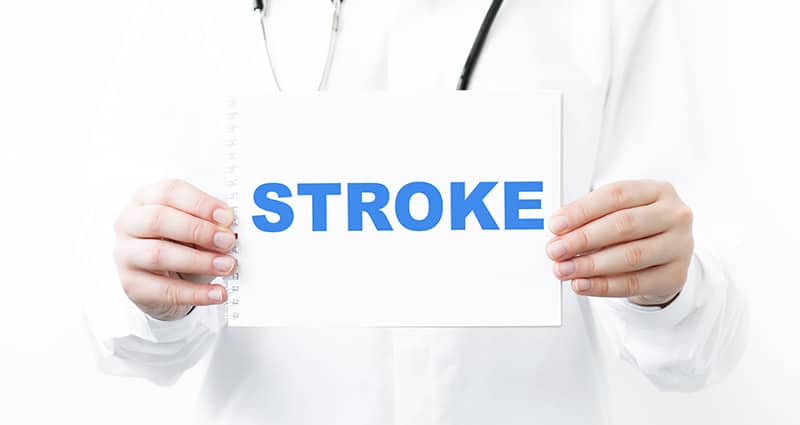For every second a stroke goes untreated, someone can lose up to 32,000 brain cells. Unfortunately, many stroke symptoms can go by unnoticed or written off.
Because of this, stroke is a leading cause of long-term disability and causes an American loss of life every four minutes. Fortunately, you don’t have to be one of them. New treatment options make it possible to stop a stroke in its tracks. With appropriate therapy, many of a stroke’s effects can be reversed.
By knowing the signs of stroke and thinking BE FAST (Balance, Eyes, Face, Arms, Speech, Time), it’s possible to survive a stroke and regain full bodily function.
Common Stroke Symptoms
Though it primarily affects older adults, a stroke can strike at any age or stage of life. Regardless of when it arises, stroke typically causes the sudden onset of the following:
- Communication problems, including difficulty speaking or understanding speech and confusion
- Loss of balance, lack of coordination, dizziness or walking problems.
- Numbness or weakness experienced in the arm, face or leg, which normally affects only one side of the body
- Severe headache that sets in without cause
- Vision problems that affect one or both eyes
BE FAST, Save a Life
Sometimes, you’re not the one suffering a stroke. Instead, it’s a family member or friend. If they complain of any of the symptoms above, get immediate medical attention.
Should your loved one try to write off their symptoms, don’t let them. Instead, think BE FAST:
B = Balance. Does your loved one have trouble walking or with coordination?
E = Eyes. Is your loved one seeing double or experiencing vision issues?
F = Face. Have your loved one try to smile. If the smile is crooked, with one side of the face drooping, it may be a stroke.
A = Arms. Have your loved one raise both arms in the air. If the arms are uneven and one can’t be held up for long, it may be a stroke.
S = Speech. Have your loved one repeat after you. Make it a simple phrase. If their speech sounds odd or slurred, it may be a stroke.
T = Time. Don’t waste another second. Call 911 immediately.




